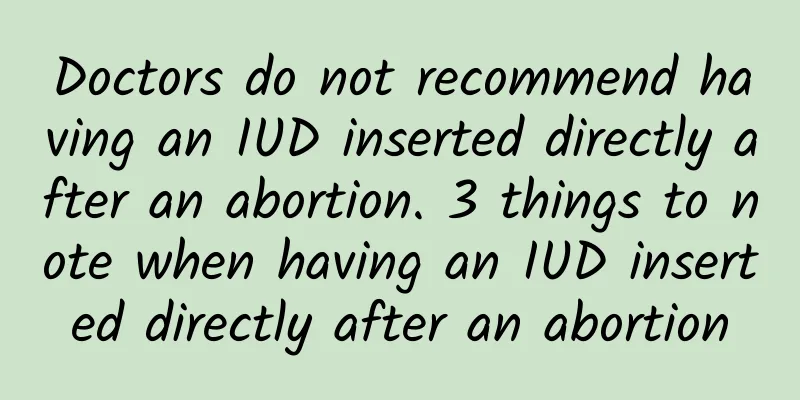What are the examination items involved in recurrent miscarriage?

|
Recurrent miscarriage in women involves many examination items. Among them, chromosome examination is involved, that is, for women to be examined for genetic diseases, both husband and wife should undergo chromosome examination. There are also examinations for immune abnormalities and specific infections, uterine lesions, semen examinations, etc. For women, when they are pregnant, they may have miscarriage without knowing the reason. This should be noted, as it may be recurrent miscarriage. Recurrent miscarriage is a disease hidden in the pregnant woman's body, and once it occurs, it has a great impact on the pregnancy process. So what are the examination items involved in recurrent miscarriage? |
<<: How to have a medical abortion? It’s divided into these 4 steps
Recommend
What should I pay attention to during miscarriage? There are still many issues that need attention.
After a miscarriage, you need to pay attention to...
Three ways to solve the trouble of chronic cervicitis
For women, the harm of cervicitis is huge, among ...
Will cervical pregnancy lead to spontaneous abortion? Will there be bleeding?
Cervical pregnancy may lead to spontaneous aborti...
What is the specific diagnosis of menstrual irregularity?
"What are the diagnostic methods for irregul...
Do women need to avoid certain foods after an abortion? How long should they not eat before the abortion?
Although artificial abortion is a minimally invas...
Eat sweet potatoes with the skin to lose weight and lower cholesterol at the same time!
Sweet potatoes are a national delicacy that every...
Eat hotpot tonic food without worrying about getting fat! Choose the right soup base and win half the prize
Mutton hotpot, ginger duck, spicy hotpot, kimchi ...
What is pelvic inflammatory mass? A mass disease
This type of pelvic inflammatory disease can caus...
The main causes of cervical hypertrophy
Cervical hypertrophy is caused by the stimulation...
Factors that cause ectopic pregnancy
It is very important to know how to have an ectop...
What foods should I eat if my endometrium is thick?
Diet can build health or threaten health, so we m...
How to care for cervical hypertrophy
Cervical hypertrophy requires professional evalua...
Which women are prone to ovarian cysts? Can laparoscopy treat ovarian cysts?
Patients with ovarian tumors may have hair distri...
How to treat ovulation bleeding
How to treat ovulation bleeding? Ovulation bleedi...
What is the process of medical abortion? Medical abortion is divided into 5 steps
Medical abortion, also known as drug abortion, re...









